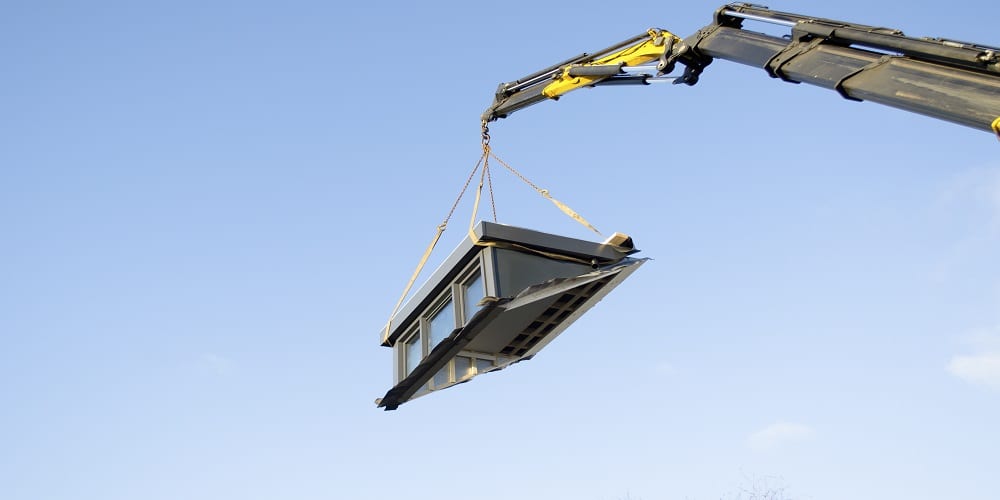Whether you are only having your bathroom refurbished or the entire ground floor, a refurbishment quickly becomes quite expensive. Many people therefore think that a renovation is expensive by definition. Yet there are some things you can do to save on your renovation. How can you do this? Check out the ultimate saving tips list below.
1. Start with good planning
A good preparation is important when renovating. This allows you to know what needs to be done and avoid unforeseen costs. Include the following in your planning:
- Description of the work
- Materials to be used
- Time frame per project
- Total time frame
- Budget per project
By putting your planning in a clear schedule, you make it easier for yourself. Ask specialists how long they will be working on their part of the renovation, making it easy to fill in your schedule. In addition, ask them directly where they see potential savings in your plan – after all, they have been in the business for years. Here is a handy example of good remodelling planning.

More examples of remodelling planning can be found at Google images.
2. Compare several quotes
Before dealing with specialists, it is wise to ask for several quotes. Because there is a lot of competition on the market, prices for the same project vary completely, even up to 40 per cent. In short, comparing pays off and the easiest way to do this is by comparing multiple quotes. When comparing quotes, note:
- How is the price calculation: per hour, per m2, fixed price, target price?
- Fixed price is best or a target price from which, for example, a maximum of 10% may be deviated. A price per hour cannot be checked properly, and if the specialist makes a mistake, it can be included in the hourly rate.
- Does the quotation make use of adjustable items?
- Estimates are items whose price cannot yet be given in full.
- Is VAT included?
- Are additional costs included?
- Think of removal costs, a measuring service, scaffolding and call-out charges.
- What is the payment method in instalments?
- Never pay more than 50% in advance (often necessary to buy materials in advance), divide the payment into three or four instalments, for example, and save the last 10% for when everything is ready and you are satisfied.
- To what extent is the quotation still flexible in terms of price changes?
With Renoca you can request simple and free quotations from various specialists. With one request, you will receive several non-binding quotes, after which you can start comparing. This way you can choose the specialist with the most attractive offer for you.
Find the best specialist for your project and receive free quotes.
Start
3. Familiarise yourself with average prices beforehand for a better negotiating position
In order to properly assess the quotes, it is wise to get a good idea of the prices.Search the internet for articles about your project and look for average prices. View price guides for each project here. There are also many tools online that allow you to calculate an indication of the cost of your project. That way, you have a target price in your head and know what to expect. If you know a little bit about what the prices are on the market, you will be stronger in negotiations, because there is always room to negotiate the price.

4. Check subsidies
Are you going to make your home more sustainable? If so, you are probably eligible for subsidies. The Dutch government is very busy making our country more sustainable, so money has been made available for subsidies. These are sometimes nationwide, but sometimes vary by municipality. Via the Energie Subsidiewijzer you can easily and quickly check which subsidies you are eligible for and the amount. This makes making your house more sustainable a lot more attractive and cheaper. A sustainable house will also increase the resale value of your home.
5. Take advantage of the reduced VAT rate from 21% to 9%
Did you know that the government has a reduced VAT rate for certain renovation work? As a result, you won’t pay 21% VAT, but only 9%. This saves a lot of money and is a good way to cut costs. The reduced VAT rate applies to the following work:
- Painting
- Plasteringing
- Isolating
- Hanging
Make sure you meet the requirements of the reduced VAT rate. For example, the reduced rate for painting applies only to houses that are more than 2 years old. Check the website of the Tax Office for all conditions.
6. Go smart with materials
The materials used in your renovation largely determine the total cost. By reusing materials, you will save a lot on material costs. Often, with a little attention, materials can be refurbished and still be put to good use. Think for instance of tiles, boards, beams and doors. Make sure that the materials will last for quite a few years. If you have to replace them in a few years’ time, it will only be more expensive to reuse materials.
Materials cannot always be reused and sometimes new materials are necessary. It is then advisable to buy materials through a contractor. The contractor gets discounts on materials that you as a consumer do not. Ask your contractor if this is possible and an indication of the discount.
7. Help out
An easy way to save on the cost of your renovation is, of course, to do part of it yourself. Think for example of:
- preparing the renovation by, for example, doing (part of) the demolition work yourself;
- disposing of debris yourself;
- preparing so that the specialist will only come for the actual work.
Make good arrangements with the specialist, so that there are no misunderstandings. Make a list of the work you will do yourself and send it along when requesting the quote.
8. Consider sustainable measures
Many people do not really have an image of the word “sustainable”, only the image that it is expensive. But is this image justified? No. All the sustainable decisions you make will ultimately reduce your energy bills. To do this, you first have to invest some money, but you will earn this amount back within a few years. After that, everything you save is pure profit. Making your home more sustainable will improve your home’s energy label and, as you read earlier, increase the resale value of your home.
How can you make your home more sustainable? Check out some examples below:
- HR++ glass
- Isolation
- HR++ boiler
- Solar water heater
- Solar panels

9. Ask your neighbours if they are also interested in the project
Likely neighbours have a house from the same year and might also be ready for the renovation you are doing. Trade specialists often work with a volume discount if they can do multiple projects at one location, after all, this is also more convenient for them. Therefore, ask neighbours if they are also interested in the project. That way, you will both enjoy an attractive discount.
10. Pay the renovation from your mortgage
Please consider financing the renovation from your mortgage. This makes the renovation costs tax-deductible and this can be attractive for your situation.
11. Choose a specialist in the area
If you choose a specialist in your area, chances are you will not have to pay any call-out charges. If the specialist is further away from the country, these are additional costs. The amount varies per specialist, but is on average around £ 0.25 per kilometre. Another advantage is that the specialist from the region has a reputation to uphold.

12. Check whether you need planning permission
Check whether your renovation complies with regulations. This is because some renovations require planning permission, which you need to apply for in advance. If you don’t do this, it could cost you a lot of money. Apply for the permit on time, it takes on average between 5 and 13 weeks. Check on the website of Omgevingsloket whether you need a permit.
For every renovation, there are exceptions that mean you don’t need a permit after all; always take this into consideration when considering adapting your design slightly to save costs. The central government has made a brochure about permit-free building and remodelling.
13. Take the season into account
In the seasons when there is less demand for a particular project, prices are always a lot lower. After all, the professional wants to be at work all year round. Think, for example, of replacing your boiler in the summer and having your painting done in the winter by a winter painter.
14. Go for prefab instead of customisation
As you can imagine, customising something is more expensive than a prefab product put together by machines in the factory in bulk. This is also true for your remodelling project. Therefore, go for a prefabricated dormer, for example, instead of a custom-made one. This will save you considerable money and the quality is often the same.

15. Put all agreements in black and white
Prevent unexpected surprises by having all the agreements you make in black and white. That way, you and the specialist know exactly who stands by what. Should a conflict arise, you can always fall back on the agreements you made and to which you both agreed. So always put a signature on paper together with the subject specialist. This can all be included on the final offer and/or in a remodelling agreement, for example. Important elements are:
- Description of work and materials
- Price
- Payment terms
- Start date
- Duration or completion date
- Guarantees
- If necessary, resolutive conditions (for example, when applying for a permit or a financing reservation)
16. Cheap is often expensive
In conclusion, there are quite a few handyman companies in the Netherlands that offer their services at a very low price. These are often handymen from Eastern Europe who work seven days a week. While this may seem like an attractive deal, the saying ‘cheap is expensive’ often applies here. If the work done is not to your liking, you are out of luck and it will cost you extra money to have it fixed by a recognised company. Other drawbacks according to Lawyer Search:
- no certainty that agreements made will be kept, any contract often has no validity in court;
- in case of leakage, fire or other damage, the insurer may reject all or part of a claim;
- have you had roof tiles replaced, but a tile has come loose and landed on the neighbour’s head, there is a good chance that liability will fall on you;
- no guarantee;
- you are also liable for tax evasion if the tax authorities find out, which can result in a fine of up to £4.000 per undeclared worker;
- have you borrowed money from the bank for your renovation, then your interest deduction may be at risk because the interest is only deductible if the loan is demonstrably spent on your own home.
Find the best professional for your project and get free quotes.
Start